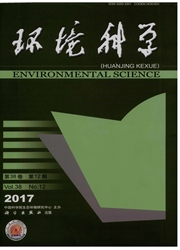

 中文摘要:
中文摘要:
为了全面研究猪粪有机肥对水稻土抗生素抗性及分布格局的影响,选择295对抗生素抗性基因引物,采用高通量荧光定量PCR对水稻土中的抗生素抗性基因污染情况进行了研究.结果表明,未施用猪粪水稻土检测出66种抗性基因,而施用猪粪水稻土则检测出107种抗生素抗性基因,施用猪粪后水稻土中抗生素抗性基因种类显著增加(P【0.05).相对于未施用猪粪水稻土,施用猪粪水稻土有49种抗生素抗性基因丰度显著增加(P【0.05),其中施用猪粪水稻土中喹诺酮类/氯霉素类抗性基因的mexF的丰度相对于未施用猪粪水稻土增加1791倍.高通量定量结果表明,施用猪粪的水稻土抗生素抗性基因分布格局发生显著变化,高通量定量技术是研究环境抗生素抗性基因的一个非常实用的工具.
 英文摘要:
英文摘要:
To investigate the effect of long-term manure application on the profiles of antibiotic resistance genes ( ARGs) in paddy soil, the abundance of ARGs targeted by 295 primers sets were measured by using high-throughput quantitative PCR technique. A total of 107 types of ARGs were detected in long-term manured paddy soil, which is significantly higher than that in control paddy soil ( P﹤0. 05). PCA analysis and UPGMA cluster demonstrated that long-term manure application significantly changed the ARGs diversity and abundance in paddy soils. There were 49 types antibiotic resistance genes were enriched significantly in paddy soil applied with manure (P﹤0. 05), especially the mexF, which belongs to quinolones-chloramphenicol resistance genes, increased 1 791-fold compared with paddy soil of no manure application. Our results showed that long-term application of manure in paddy soil resulted in the shift of abundance and diversity of ARGs, high-throughput quantitative PCR could be a powerful tool concerning the environmental ARGs dimensions.
 同期刊论文项目
同期刊论文项目
 同项目期刊论文
同项目期刊论文
 期刊信息
期刊信息
